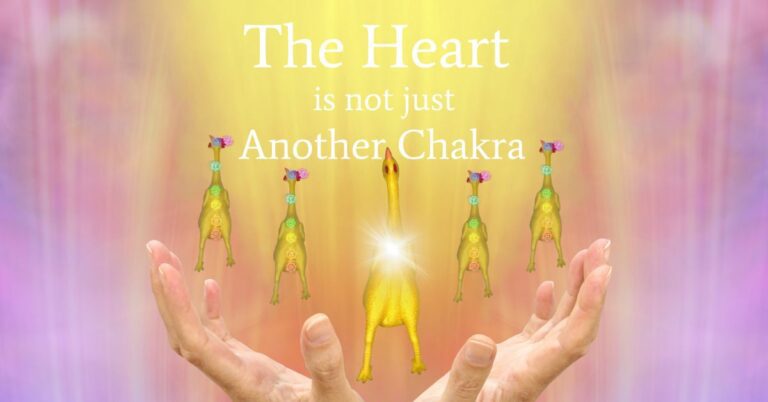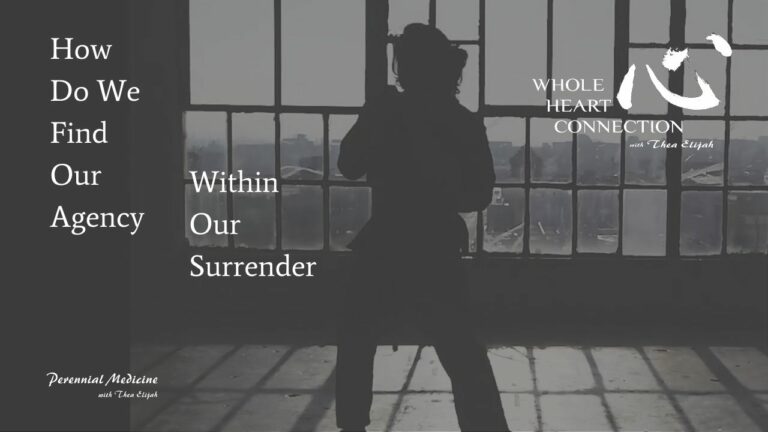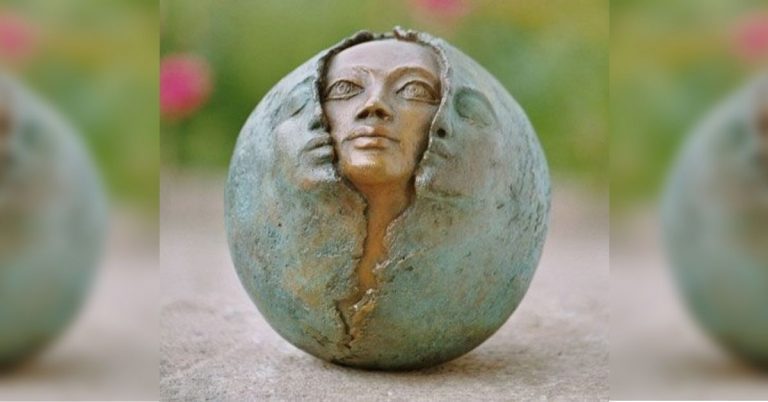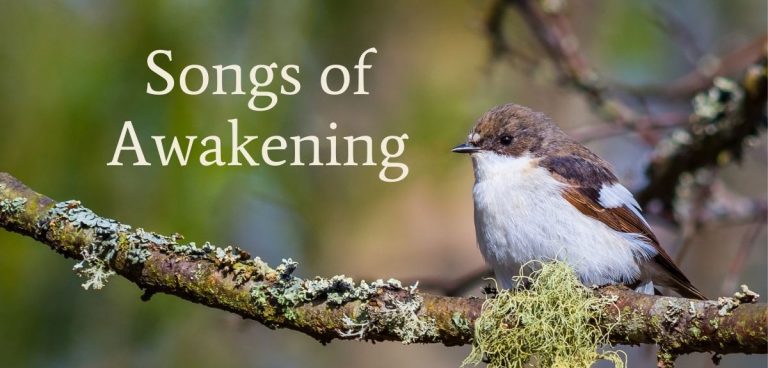Healing Loss of Heart

We are all very different in many ways, but at the core, there is a commonality of consciousness which Chinese medicine refers to as the Heart. The Heart is the place in all of us that consciousness streams through from beyond us, the way that light comes through the stained-glass windows in a cathedral. All the windows are different, but the same light comes through them.

Many ancient medical traditions, as well as spiritual traditions, teach about the Heart as a place that is beyond individuality, a place of connection that is transpersonal. There are many different words, in the languages of many different cultures, for this experiential reality. When we connect from this transpersonal space, “I” am connected to “you” without feeling different or separate in any way. You may look different from me, and on a personal level we may have different thoughts and feelings, but underneath all of that, there is a feeling of shared consciousness that has no name. It is a pre-verbal body-felt sense of a connection to every other living being, at our Heart center.
The ancient Chinese considered this Heart center to be the seat of insight and illumination because it is the place where our personal awareness (shen) is connected to universal awareness (Shen). When we have “lost heart,” we do not have the same level of access to insight and illumination, because our shen (personal heart) is not connected to Shen (Universal Consciousness). Our Hearts were not made to function in a disconnected state—and they don’t, very well.
When we have lost Heart, our spirit is not able to access our place of feeling connected to everything and everyone. Our judgment is not just poor—it’s unrealistic. Our own thoughts and feelings become inaccurate when we have lost Heart. The state of being disconnected from our most valuable resource—our Heart—is not a healthy place from which to make plans, or even trust our own reactions!
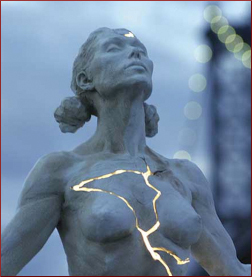
When in loss of Heart, we may notice different things. The physiology of loss of Heart feels like a full-body slump; it feels like starting to die. You haven’t died yet, but loss of Heart is a kind of walking death. It’s like a slow shutting down that affects our immune system, our endocrine system, our neurology. It dulls the edges of everything; it drags us lower and lower… and then when we take heart again, wow! We may look at our own previous thoughts and feelings and say, “I was out of my mind—why was I even thinking that?”
Sometimes loss of Heart feels like despair and resignation. Sometimes it feels like soldiering on, doing what we feel that we need to do, even though our heart isn’t in it. Sometimes it feels like any of a thousand different possible coping routines, designed to patch things up and just keep going so that we stay too busy to even to notice that we are in loss of Heart. But is that really living?

Losing Heart, and taking Heart again, has huge medical relevance. Consider such common ailments as for example, migraines, asthma, or Irritable Bowel Syndrome. Despite first appearances, migraines with loss of Heart are not the same as migraines with Heart. Asthma with Heart, or IBS with Heart, is not the same as asthma or IBS with loss of Heart. On a medical insurance form, they may look identical. However, in clinical reality, it is far more difficult to sustain lasting improvement in the health of a person who is in loss of Heart. No matter what the diagnosis, the most important part of the prognosis hinges on whether or not the person has lost Heart.
Loss of Heart is definitely not a one-time thing. On a daily basis, how many times do we lose Heart and then re-find it again? Quite possible many, many times, and that’s fine—as long as we recognize when we have lost Heart so that we don’t make major decisions while in that state. Once we have recognized that we have lost Heart, with a few simple practices, it’s not necessarily hard to re-find it again. That’s because we haven’t really lost our Heart; it’s still there. We just aren’t in touch with it, temporarily. It’s like the loss of your car keys: They’re around here somewhere. They’re in the house. I know they’re in the house. I just can’t find them.
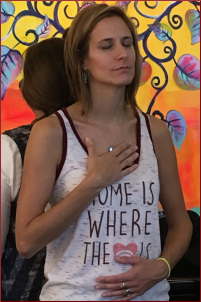
Loss of Heart goes on all the time. It’s not mysterious. It’s not strange. What matters is: are we attentive to Loss of Heart, the moment that it happens? Do we acknowledge that it means we now have an issue that’s actually more important than whatever we think the issue is? Namely, that we are now operating from a state of relative incapacity?
Often just noticing that we have lost Heart—and that this is now a self-care moment rather than a strategic moment (i.e., this is not a moment for making decisions or taking action)—is enough to help us take Heart and get back on track. Sometimes more is needed.
Loss of Heart and the Five Elements
The difference between illness, health, and virtue for all five emotional orientations is whether, in the midst of our emotion, we have lost Heart.

For instance, on its own, fear itself is not an unhealthy emotional state. Fear helps a person give deeper attention to the unknown. It’s an incredibly powerful form of focus that brings us in touch with our resources and prepares us to bring them to bear on the situation at hand.
Fear plus Loss of Heart is a different story, though. That has immediate disastrous consequences, as our hopes plummet down a mineshaft, or we spin uselessly near panic. Our responses are no longer Heart-based; the chances are much greater that we might make destructive or short-sighted choices.
On a physiological level, fear plus Loss of Heart takes a tremendous toll on the body; if it is a frequent emotional response, it can lead to chronically elevated cortisol levels. Thus there are many medical conditions that may be caused by fear plus Loss of Heart.
By contrast, fear with Heart creates a physiological state in which there is deep focal stillness and a drawing upon resources that we didn’t even know we had. Fear with Heart sharpens our hearing, helps us see in the dark, and brings us right down to our own bottom line with efficient simplicity. Chinese medicine says that this is the precursor state to wisdom and that in this case, i.e. with Heart, some fear is actually very good for our health.

It’s the same with all of the other emotions. Somebody who is angry and who has lost Heart is somebody that most of us don’t want to be around. That’s likely to be somebody who is out to do something just for the sake of “getting results,” without enough insight into possible long-term impact. For instance, in loss of Heart, a person who has been harmed may fuel their anger into retaliation. A person who has not lost Heart may still be angry at an injustice, but with Heart, the goal of anger is creative and visionary, seeking to make the world a better place for all of us.
People who are angry with Heart bring forth a ferocious love into this world. These are the revolutionaries, the healthy activists. No, I will not get up from my seat on the bus. Leaders who are furious but with Heart are passionately ready to help us all move forward.
In both situations, it’s the same motivating emotion—anger—but keeping Heart or losing Heart makes all the difference, inwardly and outwardly.
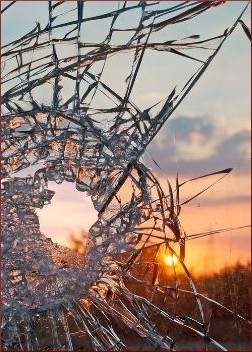
Even grief is not necessarily a negative emotion. Grief with Loss of Heart is devastating, a crushing of the spirit as though the sky itself had in fact fallen on us. The medical and spiritual consequences of grief plus loss of Heart can affect us for many years, and take us far down the road to physical illness. However, the physiological state of someone who is grieving but has not lost Heart is an exquisite state of understanding what is truly important and being willing to live by it, even if that is uncomfortable. It is a state of knowing what one stands for and knowing what really matters even in its absence. It’s cleansing, rectifying—and there’s something tremendously ennobling about that.
There’s potential nobility to all of our emotional states—every single one of them. Every emotion can become a path to health and nobility if our emotion is felt in service to the Heart. Of course, this means knowing how to recognize when we have lost Heart, and then having a few practices on hand that enable us to say, “How do I take Heart from within this strong emotion? Where do I stand in myself so that even in the midst of this challenge, I am moving towards health and virtue?”
What we perceive as our greatest weaknesses while in loss of Heart become our most foundational strengths and values when we take Heart again.

Can you see why I might consider this to be the most important topic of our time, right now? Why I am passionate about teaching, connecting, practicing, and spreading awareness about loss of heart, including loss of heart that is hidden silently underneath “coping” and other forms of just going on?
We can help ourselves, and we can help each other. Sometimes all it takes is interrupting the busy signal with a real smile. Other times, more support is needed. What has helped you, recently?
(Do you want to join the discussion? Find the Perennial Medicine listserv here.)
